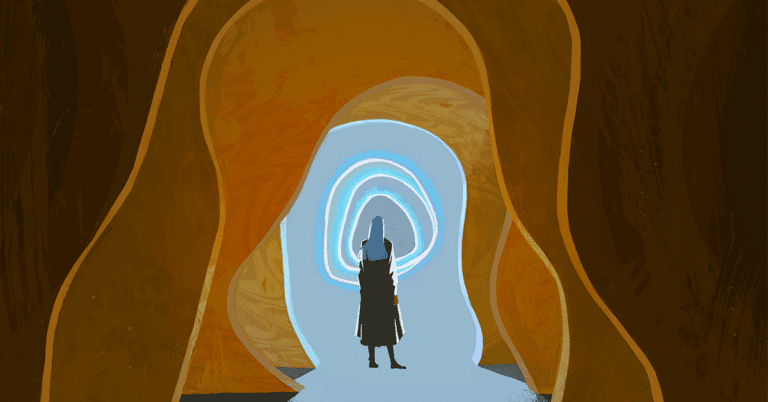
Image by Eric May/ Flickr (CC BY-NC 2.0).
Reflections on the Inner Work of Holding Paradox
If I didn’t have the idea of “holding paradox” to help me understand myself and the world around me, I’d be more lost than I am! For me, holding paradox means thinking about some (but not all) things as “both-ands” instead of “either-ors.”
So many of our troubles, personal and political, come from either-or thinking. For example, when I’m talking with a person who holds religious or political beliefs that differ from my own, either-or thinking can create a combative situation: “I’m right, so he/she is wrong. Therefore, my job is to win this argument by any means possible.” How rarely such encounters bear fruit!
But both-and thinking can lead to something much more creative: “Maybe I don’t have everything right, and maybe he/she doesn’t have everything wrong. Maybe both of us see part of the truth. If I speak and listen in that spirit, we both might learn something that will expand our understanding. We might even be able to keep this relationship and conversation going.”
Think of how much more civil and creative our conversations across lines of difference would be if we thought that way more often! We’d be working to create a container to hold our differences hospitably instead of trying to win an argument.
Of course, like everything human, this issue begins inside of us, in how we hold our own internal paradoxes. If we can’t hold our inner complexities as both-and instead of either-or, we can’t possibly extend that kind of hospitality to another person.
Here’s an ancient truth about being human: we cannot give gifts to others that we are unable to give to ourselves! That’s why “inner work” done well is never selfish. Ultimately, it will benefit other people.
“The Angels and the Furies” by May Sarton challenges us to do some of the inner work that can help us hold the tensions of personal and political life more creatively. As I struggle with “the angels and the furies” within me, I often re-read this poem to get re-grounded.
The struggle is not easy. But I always find myself comforted by what Ms. Sarton has to say in the third and fourth stanzas about what it means to be human. I hope you’ll find it as meaningful as I do…
The Angels and the Furies
by May SartonThe angels, the furies
Are never far away
While we dance, we dance,
Trying to keep a balance
To be perfectly human
(Not perfect, never perfect,
Never an end to growth and peril),
Able to bless and forgive
Ourselves.
This is what is asked of us.(Excerpted from Collected Poems: 1930–1973. Read the full poem here.)


Share your reflection